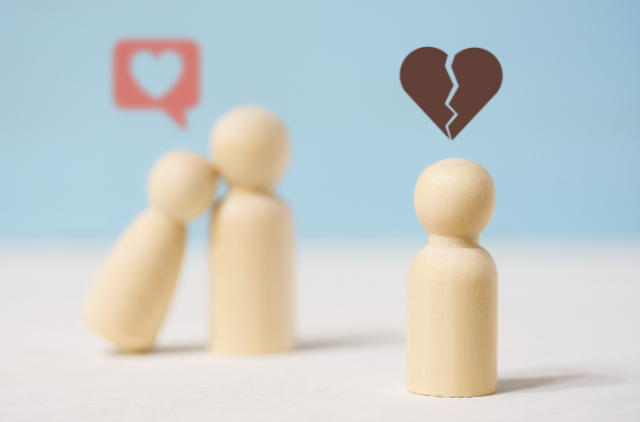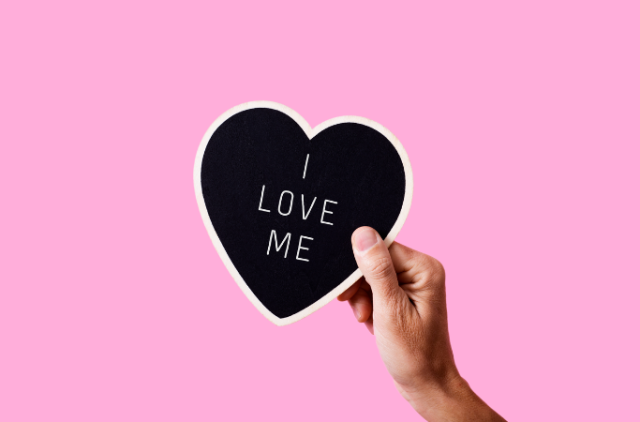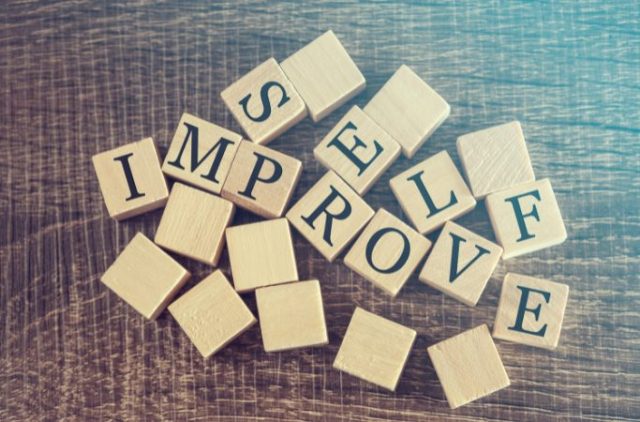9 Essential Tips on Dealing with Rejection
By John V
January 10, 2024 • Fact checked by Dumb Little Man

When it comes to romantic relationships, rejection is a difficult pill to swallow. The mere thought of it can lead to feelings of self-doubt, cause one’s self-esteem to plummet, and trigger an onslaught of negative emotions. Yet, as much as rejection hurts, it is an inevitable part of life. The ability to effectively handle rejection is a valuable life skill that can help bolster your emotional resilience and foster healthier relationships.
Understanding that rejection is not the end but a chance to grow is crucial. Whether you’ve been on just a few dates or been in a long-term relationship, the aftermath of rejection can often feel akin to physical pain. But remember, it’s not the person rejecting you that determines your worth—it’s how you perceive and handle that rejection. With this in mind, let’s explore nine actionable tips to deal with rejection.
1. Allow Yourself to Feel

Experiencing rejection can trigger a strong emotional reaction. This emotional upheaval is often characterized by feelings of sadness, disappointment, anger, and sometimes even relief. It’s critical to understand that these feelings are valid, natural, and an integral part of the healing process. Rejection hurts but denying or suppressing these emotions can lead to further distress and even manifest in physical pain.
Instead, give yourself permission to feel these emotions fully. There’s no ‘correct’ way to respond to rejection, and the process differs for everyone. Some people might need to express their emotions through tears, while others might find solace in writing, music, or art. Importantly, allowing yourself to feel does not mean wallowing in self-pity or self-blaming. It means acknowledging your feelings, understanding why you feel the way you do, and giving yourself the space and time needed to heal.
>> Also Read: Am I Ready for Love? Key Questions to Ask Yourself Before Starting a Relationship
2. Remember: Rejection is Universal

Rejection is a shared human experience. Everyone, without exception, faces rejection at some point in their lives. Whether it’s professional rejection, social rejection, or romantic rejection, these experiences are universal. When dealing with rejection, it’s easy to feel isolated and believe that you’re the only one who’s been rejected or that others handle rejection better.
The truth is, rejection affects everyone, even those who seem the most successful and confident. It’s crucial to remember this when you’re in the throes of rejection. Not only can this understanding help alleviate feelings of loneliness, but it can also provide a more realistic perspective on your situation. You’re not alone, and there are countless others who understand what you’re going through, offering a sense of shared humanity that can be comforting during such times.
3. Don’t Take it Personally

One of the most challenging aspects of dealing with rejection is not to take it personally. Rejection can sting and lead to questioning your worth or capabilities. It’s easy to internalize the rejection and view it as a reflection of your self-worth, but it’s essential to resist this tendency.
Understand that rejection, especially in romantic relationships, is often about the person rejecting, not the one being rejected. People have their own sets of values, beliefs, preferences, and circumstances that influence their decisions. Sometimes, the rejection might be due to factors entirely out of your control and not because of anything you did or didn’t do.
It can help to remember that just as you have the right to choose who you want to be with, others have that same right. When someone rejects you, it doesn’t diminish your worth or define you. Your value is inherent and not dependent on others’ acceptance or rejection. Accepting this can be a significant step in preserving your self-esteem and dealing with rejection in a healthier way.
4. Reach Out to Your Support System

In the wake of rejection, it might be tempting to isolate yourself, but doing so can intensify feelings of loneliness and self-doubt. Instead, reach out to your support system—friends, family, or a trusted mentor. These are people who care about you, understand you, and can provide comfort, perspective, and constructive advice.
Talking through your feelings can help you process the emotional aftermath of rejection. They can offer a balanced perspective, remind you of your worth, and reinforce the fact that rejection doesn’t define you. If you’re comfortable, you can also discuss your experiences with people who have gone through similar situations. Hearing about others’ experiences and how they dealt with rejection can be incredibly reassuring and provide practical insights.
In certain situations, professional help might be necessary. Therapists and counselors are trained to help you navigate the complexities of your feelings, manage rejection sensitivity, and develop strategies to cope with rejection in the future.
5. Manage Your Rejection Sensitivity

Rejection sensitivity is a tendency to anticipate rejection, perceive rejection where it may not exist, and react intensely to real or perceived rejection. This heightened sensitivity can exacerbate the pain of rejection, complicate relationships, and lead to avoidance behaviors.
If you recognize signs of rejection sensitivity in yourself, it’s important to actively manage it. Start by acknowledging your sensitivity and understanding its roots. Is it a result of past rejections, low self-esteem, or negative experiences in early relationships?
Once you understand its origins, you can start to challenge the fears and assumptions associated with your sensitivity. Mindfulness techniques, cognitive-behavioral strategies, and therapy can help reframe your perception of rejection. By developing resilience and confidence, you can change your reactions to perceived rejection and manage your sensitivity more effectively.
6. Practice Self-Compassion

Self-compassion involves treating yourself with the same kindness and understanding you would offer a friend going through a difficult time. In the face of rejection, self-compassion can be a powerful tool to manage negative emotions, self-criticism, and self-doubt.
When you’re practicing self-compassion, you acknowledge that rejection hurts and it’s natural to feel pain. Instead of engaging in self-blame or self-criticism, you remind yourself that everyone experiences rejection and mistakes are a part of growth.
There are various ways to cultivate self-compassion. Mindfulness meditation can help you stay present and not over-identify with feelings of rejection. Self-kindness involves speaking to yourself in a supportive and understanding manner, especially during challenging moments. Finally, recognizing our common humanity can help you remember that rejection is a universal experience and that you’re not alone in your feelings.
Practicing self-compassion can foster emotional resilience, improve self-esteem, and reduce the intensity of negative reactions to rejection. It also allows you to view the situation with more clarity and less judgment, opening the path to personal growth and stronger relationships.
>> Also Read: How to Really Love Yourself From the Inside Out
7. Focus on Your Strengths

In the aftermath of rejection, it can be easy to focus on perceived shortcomings or what you believe went wrong. However, such self-criticism can further undermine your self-esteem and reinforce feelings of self-doubt. Instead, choose to focus on your strengths.
Everyone has a unique set of skills, talents, and qualities that make them who they are. Remembering these strengths can help you to reaffirm your self-worth, independently of any external validation or acceptance. Write down your strengths, ask loved ones what they admire about you, or reflect on past situations where you demonstrated resilience, courage, kindness, or other positive traits.
By focusing on your strengths, you shift your perspective from the negativity of the rejection to the positivity of your personal capabilities. This not only helps to counterbalance the impact of rejection on your self-esteem but also provides a foundation for personal growth and development.
8. View Rejection as an Opportunity for Growth

Rejection, as painful as it is, can also be a powerful catalyst for growth. It offers a chance to reassess your approach, learn more about yourself, and grow stronger for future challenges. Rather than seeing rejection as a reflection of your self-worth, view it as an opportunity for self-improvement and increased self-awareness.
Ask yourself what you can learn from the experience. Did the rejection reveal any patterns or tendencies that you can work on? Did it help clarify what you’re seeking in a romantic relationship? Or did it highlight aspects of your life that you might have been neglecting?
Remember, growth often occurs outside of our comfort zones, and rejection can push us into that discomfort. Use the experience to grow stronger, develop resilience, and prepare for future opportunities.
9. Seek Professional Help When Needed

Sometimes, the emotional fallout of rejection can be intense, particularly for those with rejection sensitivity or pre-existing mental health conditions. If you find that your feelings of rejection lead to severe self-doubt, self-criticism, anxiety, or depression, or if you struggle to move forward after experiencing rejection, it may be beneficial to seek professional help.
Psychologists, therapists, and counselors are trained to help individuals navigate emotional distress. They can provide strategies to manage negative emotions, improve self-esteem, and effectively deal with rejection. Cognitive-behavioral therapy (CBT), for example, can help you identify and challenge negative thought patterns associated with rejection, encouraging a healthier emotional response.
Reaching out for help is not a sign of weakness but a proactive step toward your mental well-being. Professional help can provide a safe, non-judgmental space for you to express your feelings and learn effective coping strategies, fostering resilience and promoting healthier relationships in the future.
Conclusion
Facing rejection can be a challenging experience, particularly in the context of romantic relationships. It can incite feelings of self-doubt, damaged self-esteem, and trigger a wave of negative emotions. However, it’s important to remember that rejection is a universal experience, not a measure of your worth.
While it’s crucial to allow yourself to feel and navigate your emotions, adopting practices such as reaching out to your support system, managing rejection sensitivity, and practicing self-compassion can significantly aid in managing the aftermath. Rather than taking rejection personally, viewing it as an opportunity for growth can transform a negative experience into a positive one. At times, seeking professional help may be the most beneficial route toward emotional healing and personal growth.
In essence, how you handle rejection and the lessons you derive from it can influence your journey toward stronger self-esteem, healthier relationships, and increased resilience. Remember, rejection does not define you—it’s what you do in the face of it that truly matters.
>> Also Read: 6 Reasons You Should Embrace Rejection
FAQs: Dealing with Rejection
Why does rejection hurt so much?
Rejection can elicit a strong emotional response because, as humans, we are wired for connection and belonging. Rejection can feel like a threat to these basic human needs, which is why it can be so painful. Research even suggests that the emotional pain from rejection can activate the same areas of the brain as physical pain. However, remember that the pain is temporary and can be managed with appropriate strategies.
How can I stop fearing rejection?
Fear of rejection can prevent you from taking risks or pursuing opportunities. To overcome this fear, start by acknowledging it, and then focus on building your self-esteem and resilience. Also, reframing rejection as a learning opportunity can make it less intimidating. Seek support from loved ones or a professional, and engage in practices such as mindfulness and self-compassion to manage fear and build emotional resilience.
What should I do immediately after experiencing rejection?
After experiencing rejection, it’s essential to allow yourself to feel your emotions without judgment. Reach out to a friend or loved one to talk it out. Practice self-care and engage in activities that soothe you and boost your mood. Remember that it’s okay to feel upset and that your feelings are valid. Over time, use the experience as a stepping stone for self-reflection and personal growth. If the rejection triggers overwhelming emotions or distress, don’t hesitate to seek professional help.
John V
John is a digital marketing master's student who enjoys writing articles on business, finance, health, and relationships in his free time. His diverse interests and ability to convey complex ideas in a clear, engaging manner make him a valuable contributor to these fields.






